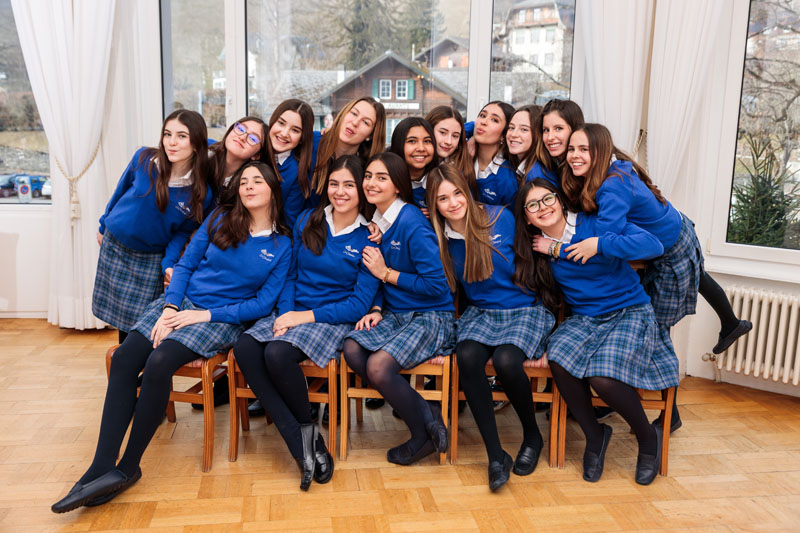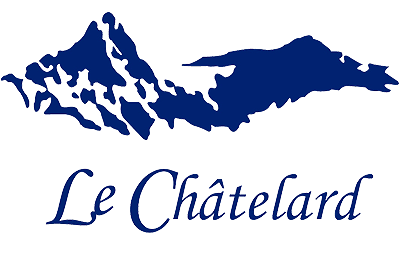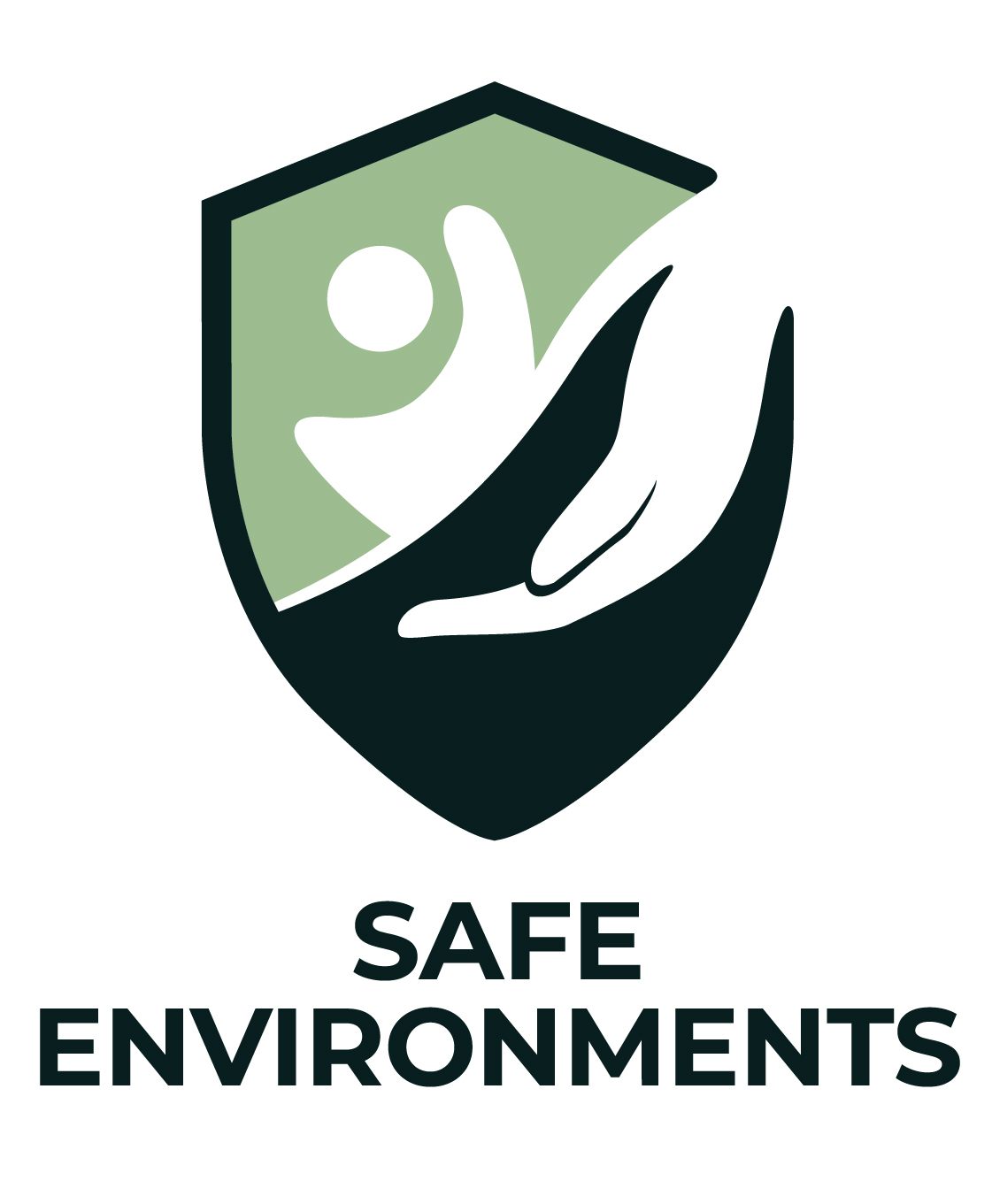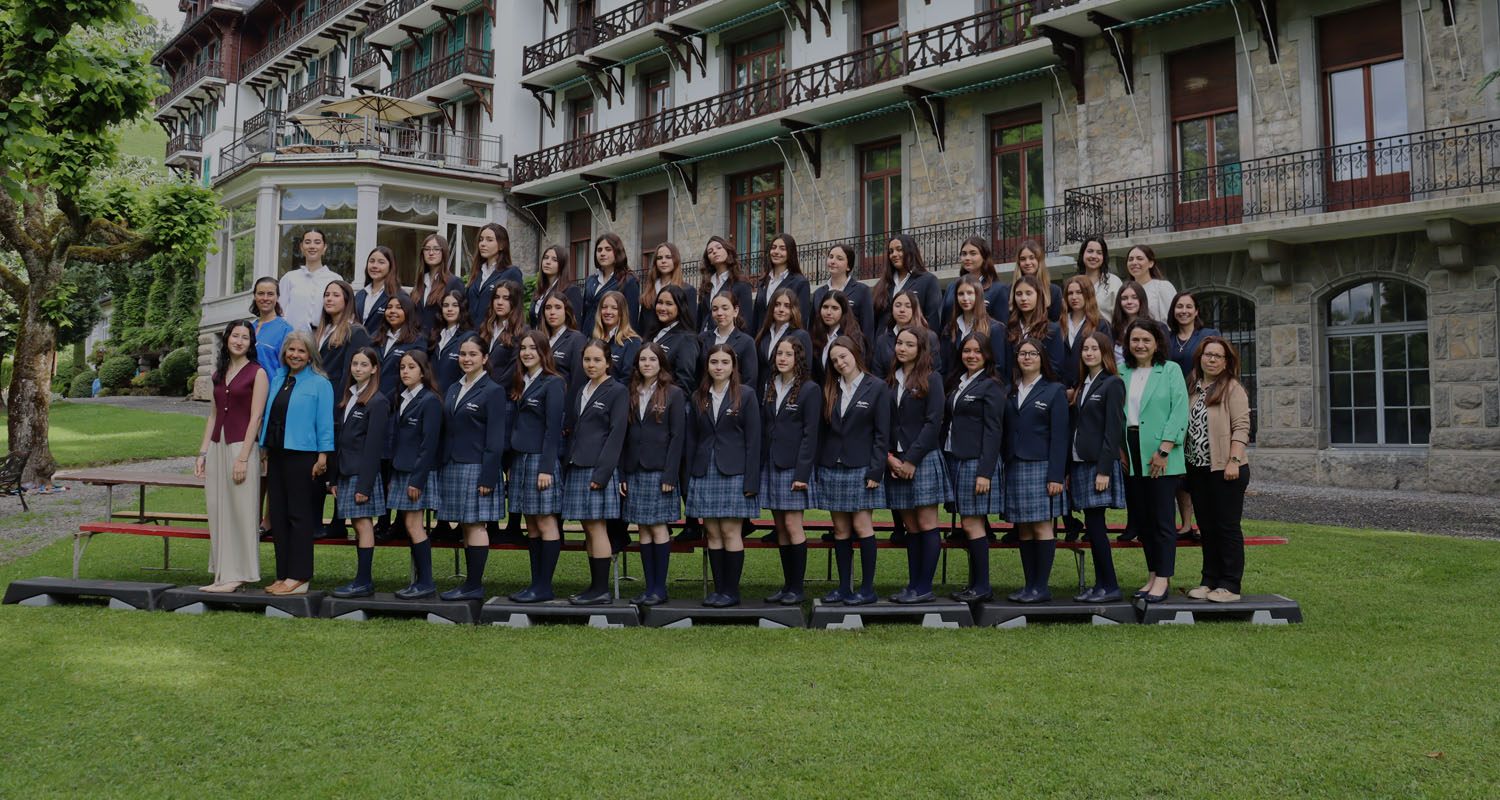Academic Program
Le Châtelard offers a truly integral formation based on the following teaching-learning process:
Academic Program
We Promote:
As a solid academic preparation for university, the Academy consistently promotes the development of a set of skills and habits necessary to tackle higher learning.
Le Châtelard offers a competitive and challenging curriculum based on Switzerland´s learning standards and those established for our Network of Schools. All subjects are taught in the French Language.
Academic Curriculum
The purpose of this course is to provide students with a thematic study of the life and environmental sciences. Students are introduced to major themes, including internal activity of the earth, animal and human reproduction, functioning of the human body, the effect of the environment on the nervous system and human influence and its impact upon the environment.
In this course students explore ideas, critically analyse and evaluate relevant visual and other information and make connections between representations in different genres, styles and traditions (connotation and denotation, expression of movement, real and suggested space, perception and appreciation of plastic art in the environment).
They initiate research, and document and interpret information in visual and other ways appropriate to their purpose and audience. The students exploit the characteristics of materials and processes to develop ideas and meanings and realise their intentions.
Students will seek to follow an upright conscience guided by the principles of faith and love, and desire to live Christian morals in accordance to the teachings of the Catechism of the Catholic Church. Themes covered are as follows: the dignity of the human person; the universal desire for true happiness; human freedom in relation to responsibility; the moral value of actions and the sources of morality; the characteristics and role of the natural law in human behaviour; the commandments as God’s law inscribed in the heart as a way of salvation and freedom; the Gospels as a new law of grace, conversion and freedom.
The aim of this course is to prepare students to the Cambridge English: First, commonly known as First Certificate in English. They work on enhancing their written and spoken English at an upper-intermediate level (level B2 of the Common European Framework of Reference for Languages), and develop the following skills: understand the main ideas of complex pieces of writing, keep up a conversation on a fairly wide range of topics, produce clear, detailed writing, control vocabulary and grammar, including perfect use of irregular verbs and understand the meaning of a range of spoken material.
French offers students’ four basic language skills: reading comprehension, conversation, pronunciation and writing, grammar. An introduction to the French and Swiss cultures provides an excellent source to apply what they have assimilated. Students will be prepared to present the DELF examinations and should be able to obtain the B1 or B2 level at the end of the year.
Exercise provides an excellent means for maintaining physical and mental fitness that come through the release of inner tensions. Competition contributes positively to building coordination skills, concentration, and a spirit of team work and discipline. Students receive a general physical preparation which will benefit them during individual and team sports.
This History part of this course is designed to present the students with an overview of European political, cultural, intellectual and economic developments. Pupils study and answer questions surrounding major themes in the 18th and 19th centuries which set the bases of the actual world, such as: the Enlightenment period, slavery, absolute monarchy, revolutions, the industrial age, colonization, Europe in 1914. This approach allows students to make connections between historical and current events.
The Geography part is designed to help the students develop an understanding of the physical, social and economic processes which shape that environment. To achieve that comprehension, the Geography syllabus aims to introduce students to the human habitat – processes and change; population, settlement patterns and patterns in economic activity in most powerful and poor countries, globalization and cultural diversity.
During the year, pupils study algebra and geometry. As for algebra, topics include calculation, power, equation, proportionality, units of measurement. Geometry topics will include congruency, similarity, dimensionality, trigonometry and patterning of all geometric figures.
This course gives the students an understanding of the role of Physics and Chemistry in life and science. During the academic year, students will have to acquire the knowledge, skills, behaviours and critical thinking needed in topics related to: electrical resistance, alternating and oscillating voltage, electrical energy and force, surrounding materials, combustion of organic and metallic materials, light and colours.
The purpose of this course is to develop the potential of the student so as to become a self-assured and confident woman. The classes of personal presentation encourage the students to develop positive self-image and self-esteem. The classes of protocol provide the students with the tools necessary so as to be at ease in whatsoever situation they find themselves in. The themes covered include: courtesy, table dressing and decoration, precedence at table, the importance of image and body language, musical appreciation and nutrition.

Ages: 13-15 years old
French
During this course students will be exposed to the French language, encompassing the grammatical and oral elements, in addition having an introduction to the culture of France. They will prepare the DELF exams, level B1 or B2 according to their capacities.
English
The aim of this course is to prepare the students to the Cambridge English: First, commonly known as First Certificate in English. They work on enhancing their written and spoken English at an upper-intermediate level (level B2 of the Common European Framework of Reference for Languages), and develop the following skills:
- Understand the main ideas of complex pieces of writing, such as fiction and non-fiction books, journals, newspapers and magazines
- Keep up a conversation on a fairly wide range of topics, expressing opinions and presenting arguments
- Produce clear, detailed writing, such as a short story, a letter, an article, a report, a review or an essay, expressing opinions and explaining the advantages and disadvantages of different points of view
- Control vocabulary and grammar, including perfect use of irregular verbs
- Understand the meaning of a range of spoken material, including news programs, speeches, stories, anecdotes and public announcements
- Demonstrate different types of speaking, including by themselves and in discussion with others
Le Châtelard offers sports and artistic courses as an additional touch to the formation of our students. The elective course fee includes two weekly sessions first and third term and one weekly session on the second term (ski season). In courses such as photography and tennis students are expected to bring their own equipment or to purchase it in Switzerland as the school does not provide them.
On Campus
- Cooking Le Cordon Bleu
- Pottery
- Basketball
- Kickboxing
- Zumba
- Photography
- Make-up course
- Tennis
- Hip-pop dance
- Soccer
- Personal Training
- Spinning
Off Campus
- Alpinism
- Ice Skating (just second term only)
- Swimming
- Horse-back riding (1st and 3rd trimester)
Some of these courses are not available the whole year.
Elective courses are chosen according to the availability before the beginning of the term and no changes will be possible until the following term. Students are expected to attend all the sessions.
Ski Season
During the months of January, February and March, the girls go skiing every weekend with qualified monitors for the girls to teach them how to ski.
If the student wants to go skiing on another day besides those programmed, she must be accompanied by a member of the staff. Please note that this is at their own personal expense.
Le Châtelard students apply what they learn through the social participation activities which they themselves organize, such as visits to nursing homes, creation of spiritual/cultural clubs, and other projects adapted to their age.
JHS Formation Program
JHS Formation Program
Today’s world calls for a type of woman who is committed to improving her environment. This woman needs to be a leader, distinguished by her self-giving and capacity to guide others.
Recommended Clothing
We highly recommend that our students do not bring more clothes than the ones listed, since they usually like to buy them here, as they are more adapted to the Swiss climate.
Junior High School Honor List
Junior High School Honor List
The medals which are awarded in the different aspects of the human, intellectual and spiritual formation show the excellence of the integral formation that the girls aspired during the year.



